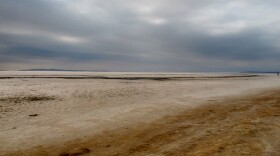
Randy Simon
Randy Simon has over 30 years of experience in renewable energy technology, materials research, superconductor applications, and a variety of other technical and management areas. He has been an officer of a publicly-traded Silicon Valley company, worked in government laboratories, the aerospace industry, and at university research institutions. He holds a PhD in physics from UCLA. Dr. Simon has authored numerous technical papers, magazine articles, energy policy documents, online articles and blogs, and a book, and holds seven patents. He also composes, arranges and produces jazz music
-
We are all aware of the dangers of second-hand smoke. It is why smoking is not allowed in almost all public spaces. But a new study has revealed a persistent and evolving threat to indoor air quality known as third-hand smoke.
-
The world’s oceans just keep getting hotter. International analysis published in the journal Advances in Atmospheric Sciences finds that the oceans stored more heat in 2025 than in any year since modern measurements began.
-
The use of energy by artificial intelligence technology is rapidly increasing. Massive data centers performing the intense computation needed for training large models are consuming huge amounts of energy. Last year, AI consumed over 4% of U.S. electricity, putting a real strain on electric grids. Projections are that AI energy demand will more than double by 2040.
-
In healthy ecosystems, mosquitoes feed on a wide range of animals, including birds, amphibians, and mammals. But when those ecosystems lose species, mosquitoes are left with fewer choices. New research suggests that in some places where biodiversity is shrinking, humans are becoming the preferred target.
-
The ongoing battle between the Trump administration and the American offshore wind industry saw multiple court rulings in January. In December, the Interior Department ordered all work to stop on five offshore wind projects under construction, citing unspecified national security concerns. As a result, $25 billion in investments are in jeopardy. In response, the developers of the projects filed lawsuits in various courts arguing that the government failed to justify its actions and delaying the projects would cause irreparable harm to the companies involved.
-
Marmara Lake once spread across 17 square miles in the Turkish province of Manisa. Tourists came from far and wide to boat on its waters, which were the home of nearly 20,000 birds. In 2011, the lake began to dry up. By 2021, the lake had lost 98% of its water, destroying the ecosystem that depended on it.
-
The Amazon rainforest is the world’s large tropical rainforest, covering roughly 2.7 million square miles. It comprises more than half of the world’s remaining rainforests. It is crisscrossed by thousands of rivers, including the huge Amazon River, and is famed for its biodiversity. It is comparable in size to the United States and extends into nine South American countries. Most of it is in Brazil. Colombia contains only a small fraction of the Amazon rainforest – roughly 6% of it – but the rainforest there makes up 40% of the country.
-
Historically, growing industry and the economy meant burning more fossil fuels. As the world faces the prospect of needing to reduce carbon emissions, the worry is that it can’t cut emissions without cutting growth. But a new analysis by a London-based think tank has found that the opposite is happening.
-
New Jersey has a program called Blue Acres, started in 1995, which to date has used more than $234 million in federal and state funds to pay fair market value to purchase homes in flood-prone areas. The properties are returned to permanent open space, which can better absorb rainwater than man-made surfaces such as concrete, asphalt, and buildings.
-
The United States took many backward steps with respect to the environment over the past year. Elsewhere, there was some progress by governments and other organizations in efforts to protect the natural world, preserve ecosystems, and establish policies to benefit the environment.











